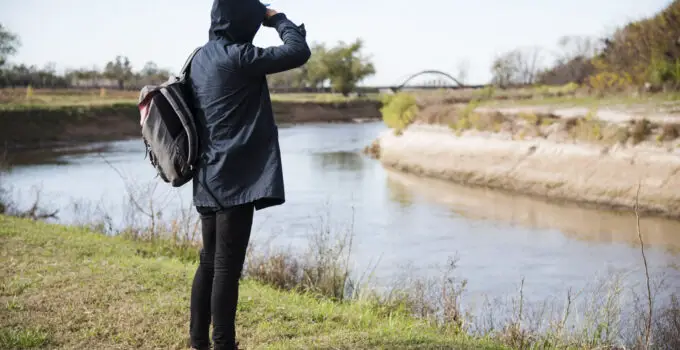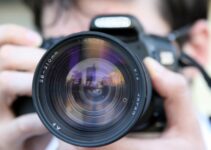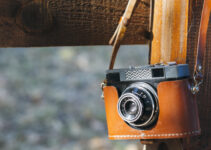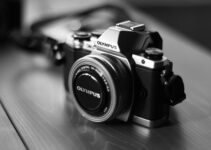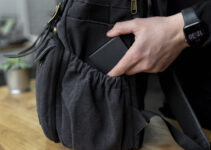Have you ever found yourself wondering what to carry in your everyday camera bag? As a photographer, it’s crucial to have the right gear with you to capture those perfect moments whenever inspiration strikes.
But with so many options available, it can be overwhelming to decide what essentials should make it into your bag. That’s where we come in to help! In this article, we will guide you through the must-have items that should accompany you on your photographic adventures.
From cameras and lenses to accessories and tools, we’ll provide valuable insights to ensure you’re well-prepared to capture stunning images every day.
So, let’s dive in and unlock the secrets of a well-stocked camera bag!
Thus first here you can check out how long does camera need to be in bag to acclimate?
14 things you must carry in your camera bag everyday
Camera Body and Lenses
The foundation of any camera bag is, of course, the camera body and lenses. Depending on your preference and the type of photography you engage in, choose a camera body that suits your needs.
Additionally, carry a selection of lenses that cover a range of focal lengths, including a wide-angle lens, a standard zoom lens, and a telephoto lens. This ensures you have the flexibility to capture various types of shots.
Memory Cards and Batteries
Running out of memory or battery power during a photoshoot can be frustrating. To avoid this, carry extra memory cards with sufficient storage capacity and make sure they are formatted and ready to use.

Additionally, pack spare batteries and keep them charged to ensure uninterrupted shooting.
Tripod
A tripod is an invaluable tool for stabilizing your camera, especially in low light situations or when shooting long exposures. Look for a lightweight and sturdy tripod that can be easily carried in your camera bag.
It will help you achieve sharper images and explore creative techniques such as long exposure photography. Here check out what size dry bag for camera?
Lens Cleaning Kit
Dust and smudges on your lens can significantly impact the quality of your images.
A lens cleaning kit consisting of a blower brush, microfiber cloth, and lens cleaning solution is essential for keeping your lenses clean and free from dust or fingerprints. Regularly clean your lenses to maintain image sharpness.
External Flash
Carrying an external flash allows you to have better control over lighting conditions, especially when shooting in challenging lighting situations.
It helps in reducing harsh shadows and illuminating subjects effectively. Ensure compatibility with your camera system and experiment with different flash techniques to enhance your photography.
Camera Rain Cover
Nature doesn’t always cooperate with our plans, and unexpected rain showers can pose a threat to your camera gear. Invest in a reliable camera rain cover that provides protection from water and moisture.
This way, you can continue shooting even in inclement weather conditions without worrying about damaging your equipment.
Lens Filters
Lens filters are indispensable accessories for photographers. They can enhance your images by reducing glare, controlling reflections, and adjusting color balance.
Carry a polarizing filter to minimize reflections and increase color saturation, a neutral density (ND) filter for long exposures, and a graduated neutral density (GND) filter for balancing exposure in landscape photography. Here check out how to please a photo camera in bag?
Remote Shutter Release
A remote shutter release is a handy tool for minimizing camera shake when shooting long exposures, self-portraits, or group photos. It allows you to trigger the shutter without physically touching the camera, resulting in sharper images.

Camera Strap
A comfortable and sturdy camera strap is essential for carrying your camera around without straining your neck or shoulder.
Opt for a strap that distributes the weight evenly and provides quick access to your camera when needed. A well-designed camera strap ensures that your camera is secure and easily accessible during your photography adventures.
Notebook and Pen
Keeping a notebook and pen in your camera bag is a great way to jot down ideas, locations, or any other important details related to your photography.
It allows you to make notes about composition, settings, or any creative inspiration that comes to mind. This simple practice can help you improve your photography skills and keep track of your progress.
Lightweight Tripod
In addition to a regular-sized tripod, it’s beneficial to have a lightweight and compact tripod as part of your everyday camera bag.
This type of tripod is perfect for spontaneous photo opportunities or situations where carrying a larger tripod is impractical. A lightweight tripod ensures stability while offering convenience and portability.
Lens Hood
A lens hood is a simple accessory that attaches to the front of your lens to block stray light and prevent lens flare. It helps in maintaining contrast and image quality, especially when shooting in bright conditions or with a strong light source in the frame.
Always use a lens hood to protect your images from unwanted flare and maintain optimal image quality. Her you can look up shoulder bag- what type of camera bag?
Portable External Hard Drive
As a photographer, you generate a considerable amount of data with your images. It’s essential to have a portable external hard drive in your camera bag to back up your files on the go.
This ensures that your precious photographs are safe and allows you to free up space on your memory cards for more shooting.
Cable Release
A cable release is a remote control device that allows you to trigger the camera shutter without touching the camera itself.
It’s especially useful for situations where you need to minimize camera shake, such as long exposures or macro photography. A cable release enables precise control and helps capture sharp, blur-free images.
Camera Bag Organisation
Lastly, it’s crucial to have a well-organized camera bag to keep all your gear safe and easily accessible.
Invest in a camera bag with customizable dividers and compartments to arrange your equipment efficiently. This way, you can quickly find what you need without fumbling through a cluttered bag. Thus here you can check out what kind of camera bag you must carry?
FAQs (Frequently Asked Questions)
How many lenses should I carry in my everyday camera bag?
It depends on your shooting style and preferences, but a versatile setup typically includes a wide-angle lens, a standard zoom lens, and a telephoto lens.
Do I need a lens cleaning kit if I already have lens filters?
Yes, lens filters primarily serve different purposes than lens cleaning kits. A lens cleaning kit helps remove smudges, dust, and fingerprints from your lenses, ensuring optimal image quality.
Is a camera rain cover necessary for all weather conditions?
While it may not be necessary in every situation, a camera rain cover provides added protection during unexpected rain showers or inclement weather, safeguarding your gear from water damage.
How can a lightweight tripod benefit me?
A lightweight tripod offers convenience and portability, allowing you to capture steady shots even in situations where carrying a larger tripod is impractical.
Why should I carry a portable external hard drive?
Carrying a portable external hard drive allows you to back up your images on the go, ensuring the safety of your photographs and freeing up space on your memory cards for more shooting.
Conclusion
Having a well-equipped camera bag ensures that you’re always prepared to capture stunning photographs in any situation.
By considering the essential items mentioned in this article, including your camera body and lenses, memory cards, tripod, cleaning kit, and various accessories, you’ll be ready to take on any photographic opportunity that comes your way.

